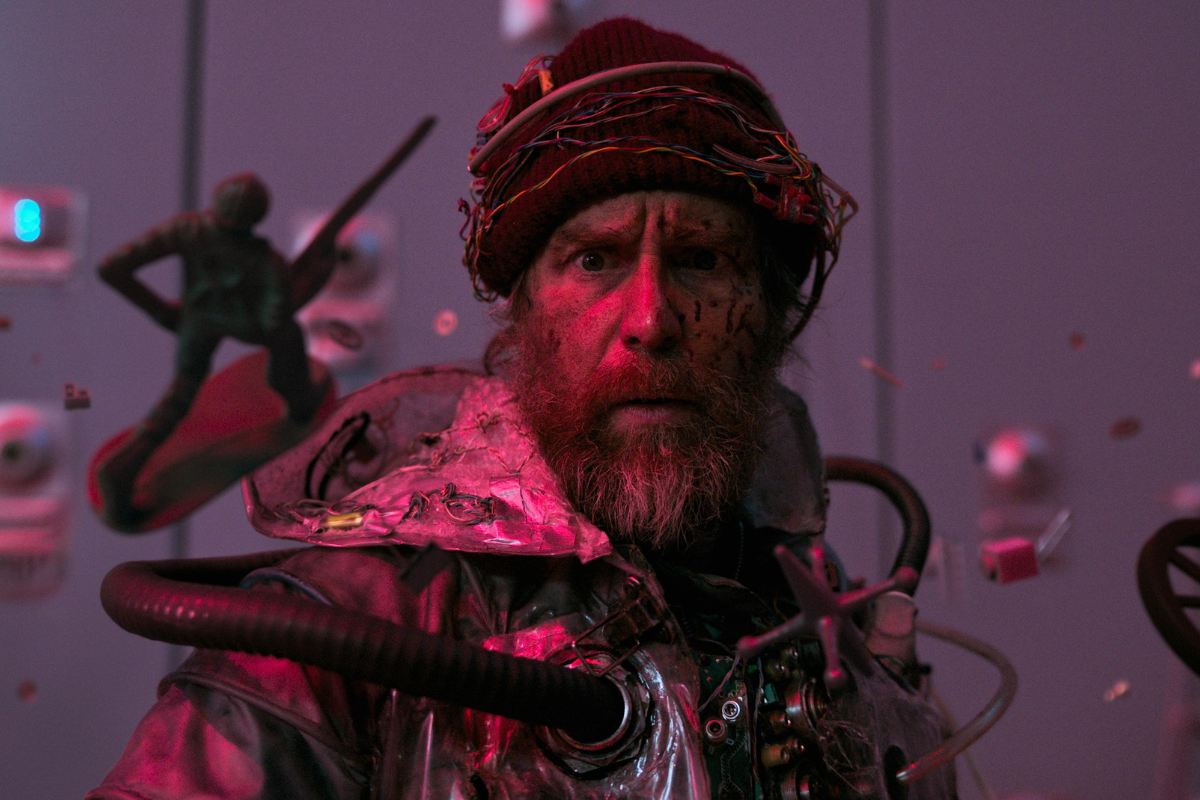‘It Was Just an Accident’ Review
Jafar Panahi Turns Trauma Into Defiance
Some films rattle you with their artistry. Others shake you because of what they stand for. Jafar Panahi’s It Was Just an Accident somehow does both at once, delivering one of the most blistering, humane, and darkly funny films of the year.
The film arrives with the weight of history behind it. Panahi, once again, has pulled art out of the jaws of repression. His own story is etched into the bones of this project: years of imprisonment, blindfolded interrogations, solitary confinement, and later, confinement with hundreds of other political detainees who argued fiercely about what resistance really meant. For Panahi, listening became a survival tactic. Deprived of sight, he trained his ears to notice every squeak, shuffle, or breath that might tell him more about those holding him captive. That hyper-awareness — of sound, of memory, of the slippery line between truth and imagination, flows directly into this new film.
On the surface, it plays as a tense moral thriller about a working-class man who believes he has stumbled across someone from his past — someone who once inflicted terrible harm. But Panahi, as always, has no interest in the surface alone. He digs deeper. What begins as a seemingly straightforward tale of revenge soon spirals into something thornier, funnier, and far more unsettling. The question is not just whether revenge is possible, but whether it is even desirable. Can pain ever truly be buried? And if you try, who else gets buried with it?
What struck me most was the way dark comedy bleeds into dread. The film has moments of absurd humor, the kind that makes you laugh uncomfortably because you can sense what lurks beneath. That tonal tightrope is vintage Panahi: laughter morphs into silence, silence into anxiety, anxiety into rage. It is the same lived dark comedy of an artist imprisoned for making art, then slowly coming to terms with the despair of perhaps never being able to create again. That despair hums through every frame here, making the film feel both personal and political in equal measure.
And yet, for all its anger, the film is not a bleak slog. Panahi’s warmth is still here, his humanism still intact. His characters, played mostly by non-professionals, are painfully, beautifully human. They argue, they joke, they hesitate, they doubt. They stumble their way through impossible choices. It is this messy humanity that keeps the film from being swallowed by its rage.
The ensemble cast deserves every bit of praise. There is a lived-in quality to their performances that makes you forget you’re watching actors. They feel like real people, haunted by real histories. Their interactions have the looseness of improvisation, but the precision of lived truth. The balance between amateur performers and Panahi’s single professional lead actor is astonishing, together they create a dynamic that feels both unpredictable and deeply grounded.
From a craft perspective, this is Panahi at his sharpest. The cinematography is deceptively simple: long takes, often in wide frames, that force us to sit with the characters and their choices. The tension builds slowly, inexorably, until it becomes unbearable. And then, just when you think you know where it’s going, Panahi finds a way to surprise you, sometimes with humor, sometimes with horror, often with both. Sound, too, plays a vital role. Footsteps, shuffles, the squeak of a prosthetic leg, every noise carries weight, like an auditory ghost of memory.
One of the boldest choices Panahi makes is how he leans into ambiguity. He doesn’t spoon-feed answers, nor does he pretend there are easy ones. He asks us to sit with doubt, to wrestle with questions of complicity, forgiveness, and justice in a world where justice rarely exists. Do we direct our rage at individuals, or at the system that shaped them? Can revenge heal trauma, or does it simply pass it forward like a curse?
The politics here are unavoidable. While the film is rooted in the Iranian experience — particularly Panahi’s own, its themes feel startlingly universal. Watching this in the context of today’s America, with its own fractures, resentments, and political absurdities, I couldn’t help but feel its timeliness. It is not simply a story about Iran. It is a story about what happens when corrupt systems push people past their breaking point, splintering communities, and leaving grief in their wake.
That universality might be why the film has resonated so powerfully on the festival circuit. Winning the Palme d’Or at Cannes feels almost secondary when you consider the circumstances of its making. After all, this is a film created by a man who was once banned from filmmaking for 20 years. Its very existence is an act of defiance. The award is a triumph, yes, but the real victory is that Panahi continues to make movies at all.
And make no mistake, this is one of his finest. The film is taut, gripping, morally tangled, and emotionally devastating, but it’s also funny, strange, and alive with energy. That blend, of anger and humor, despair and empathy, is what makes Panahi such a singular artist. Many filmmakers can craft a thriller. Few can craft one that doubles as both a cry of rage and a celebration of human resilience.
By the final stretch, the film reaches a crescendo that left me breathless. Without spoiling details, I’ll just say the last twenty minutes are among the most powerful I’ve seen in years. Panahi doesn’t settle for catharsis, or neat conclusions. Instead, he leaves you with questions, images, and emotions that linger long after the credits.
What makes It Was Just an Accident so extraordinary is that it works on every level at once. As a thriller, it’s tense and compelling. As a political statement, it’s fearless. As a piece of personal expression, it’s raw and searing. And as cinema, it is simply magnificent.
Panahi has always been one of the most courageous filmmakers alive, but here he has created something that feels both timeless and of-the-moment. It is a film about memory, trauma, revenge, and the impossible task of staying human when everything around you conspires to strip that humanity away. It is also, surprisingly, a film that finds humor in absurdity, and tenderness in anger.
In short, this is not just one of the best films of the year. It is one of the most necessary. Watching it is not just an act of filmgoing, but of bearing witness to an artist who refuses to be silenced, and to the truths that oppressive systems would rather keep buried.
Jafar Panahi doesn’t just make films. He reminds us why films matter.
It Was Just An Accident releases in Theaters on October 15, 2025.







